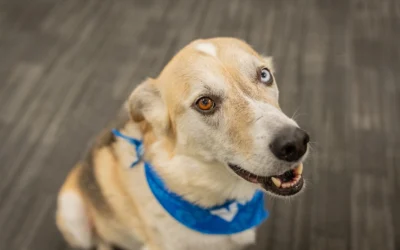This summer was a major period of recognizing, understanding and celebrating transgender people in popular media. Caitlyn Jenner, an Olympic athlete and transgender woman, almost broke the internet with her spectacular coming-out on the cover of Vanity Fair’s July issue. Meanwhile, the ethereal, statuesque and talented transgender actress Laverne Cox, of Orange is the New Black fame, graced the cover of BUST Magazine’s June/July edition. Many discussions of transgender inclusivity sprung out of these (among other) instances of transgender visibility in popular media.
These conversations aren’t just limited to the popular culture. In April, after most students had left campus without a second thought, MacEwan University transformed its single-stall restrooms into all-gender restrooms. It wasn’t a difficult task — signs on the doors simply had to be replaced — but it signals an important change in the university atmosphere. The change? Greater inclusivity.
“It’s a great move for students at MacEwan University,” Cameron McCoy, former Students’ Association of MacEwan University (SAMU) president, told MacEwan News. [pullquote]”All-gender washrooms contribute to making our campuses safer, more inclusive and welcoming for everybody.”[/pullquote]
A video on MacEwan University’s YouTube channel, featuring MacEwan Sexual Health Club (MSHC) executives Courtney Cliff and Ashley Hlewka, addresses some of the concerns and questions about the nomenclature change. “We think these all-gender bathrooms are going to be an incredible start to gender inclusivity in our school,” Cliff tells me. “It’s kind of like a message. Whether our entire student body knows it or not, it’s kind of like a subliminal way of saying, like, ’We are an inclusive school, or we’re at least working toward it.’”
“It shows that we’re not going to be tacitly compliant,” she says. “I really, truly believe using the bathroom of your choice is a huge deal, because where in the school are you going to have the most privacy? In a bathroom.”
In addition to their appearance in the Q&A video, MSHC is working with the university to ensure that all single-stall restrooms have the new signage. Although Cliff is quick to point out the MSHC is not strictly an LGBTQIA+ organization, she says the club does work to address LGBTQIA+ issues and aims to be inclusive in their discussions. For its part, the club avoids using gendered language when talking about matters of sexuality and health. Different parts of the body are discussed using technical language or non-gendered slang, and menstruation is not framed as exclusively feminine. The club also gets involved in LGBTQIA+ events. For instance, they will be working in conjunction with the altView Foundation with the goal of hosting a Status of Queer Conference at the university.
The MSHC has no official membership. Instead, the club considers its event attendees and social media followers to be its membership. “You don’t specifically need to be a MacEwan student to be a member of our club,” Cliff explains, “and the reason we do that is because most of our events are held sporadically through the year and we kind of have, like, the idea if we have a core membership, then we’re missing more students that way. If we keep it broad, then anyone can access our resources at any time.”
Some of the events hosted by the club include STI testing, film screenings, info booths and “consent-themed slam poetry.” Additionally, the MSHC offers resources such as condoms, dental dams and packages of lubricant, which are accessible in the MSHC locker and are handed out by the club as well.
The university’s moves toward gender inclusivity are not without precedent, suggests Craig Gnauck, a counsellor in Wellness and Psychological Services at the university. Gnauck says that he can remember LGBTQIA+ students advocating for LGBTQIA+ groups on campus as early as the 1980s.
The university’s overall desire to be a safe space to all people was brought up both by Gnauck and Carly MacArthur, the Student Wellness Case Coordinator for Student Life. “MacEwan really recognizes that, in order to be an inclusive and supportive space, that requires collaboration between faculty and students,” MacArthur says, “and so, from the opportunities like InQueeries, or U-SOLVE, or the MacEwan Diversity team . . . it’s a space for everybody to get involved.”
The need for safe spaces is a sentiment echoed by Chelsa Simpson, the co-chair for InQueeries, the university’s gay-straight alliance (GSA). Simpson emphasized the importance of GSAs like InQueeries. “These [LGBTQIA+ people] might not feel safe within the general population of MacEwan,” she says, “so it just kind of creates this space where there’s other people like them, and they know that they’ll be accepted for who they are.”
InQueeries meetings, which resume on Sept. 17, can vary from what Simpson describes as fun meetings — such as craft making or Halloween pumpkin carvings — to more informative ones, such as a potential information session with HIV Edmonton. They plan to work with MSHC for some events over the coming year, and they sometimes collaborate with other university GSAs. One of the bigger events held by InQueers is Gender Bender, when participants dress up as gender non-comforming as they wish and celebrate diversity and inclusivity. “It’s just a fun way to kind of let go,” Simpson explains.
In the event that InQueeries is unable to provide a specific resource to inquirers, they will direct those people toward resources that could potentially help.
Like Cliff, Simpson is an advocate of the university’s all-gender bathrooms. “It’s huge,” Simpson says. “I have a couple of friends . . . that have gone into the bathrooms — the men’s or women’s bathrooms, whichever one — and they’ve felt very unsafe in there because the sign on the door doesn’t match the gender that they are, or what people see might not match the gender that is on the door, so I think just having the all-gender bathroom just gives them a safe space to do their business, like everybody deserves to have.”
Kevin Ulliac, Peer Support Assistant at SAMU, and Jamie Beagan, SAMU Student Services Manager at City Centre Campus, echo Cliff’s and Simpson’s sentiments on the revamped restrooms. “I think it’s a great move forward, that we’ve got all-gender bathrooms, personally,” says Beagan, adding, “From what I’ve seen with the MacEwan population, it’s a very open-minded and inclusive student population.”
Peer Support offers a space for students to discuss any issues or challenges they might be facing on campus or in their personal lives. Peer Support volunteers are students from the university who undergo comprehensive training. Often, the service will make referrals for students to other services for their issues. These referrals will often be to resources within MacEwan, which can include counselling at the university’s Wellness and Psychological Services department, though they will also make external references. Peer Support’s services are located in room 6-108A at City Centre Campus, and there is a large decal on the door denoting the service.
Simpson and Cliff both emphasize listening to LGBTQIA+ people as being key to good allyship. “If you hear something [negative] in the hallways being said, just stand up for the group that’s being targeted,” Simpson says. “Even though you might not be part of that group, you can still, you know, let your voice be heard and let people know that what they’re saying is not okay.”
Meanwhile, Cliff advises, “If you’re taking a class with someone who has come out as trans or gender-non-conforming and doesn’t use the pronoun that you would assume for them, or that the professor is using, you can make sure that you follow their wishes if they’ve spoken up about it.”
“The biggest [point] is, ‘Don’t make assumptions.’”
[Note from the editor: While we recognize that there many acronyms in use to reference non-heteronormative and non-cisnormative identities, we have chosen to use “LGBTQIA+” in this article to refer to lesbian, gay, bisexual, transgender, two-spirit, queer, intersex and asexual individuals.]





0 Comments